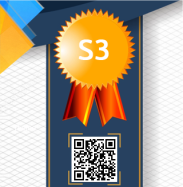DEVELOPING STUDENTS’ MATHEMATICAL UNDERSTANDING USING GEOGEBRA SOFTWARE
Abstract
Keywords
Full Text:
PDFReferences
Bekene, T.. “Implementation of GeoGebra a Dynamic Mathematical Software for Teaching and Learning of Calculus in Ethiopia”. International Journal of Scientific & Engineering Research, 11(9), 2020, 838–860. https://doi.org/10.14299/ijser.2020.09.01.
Creswell, John W., Research Design: Qualitative, Quantitative, and Mixed Methods Approaches, Los Angeles: SAGE Publications, 2017.
Isaac Benning, “Enacting Core Practices of Effective Mathematics Pedagogy with GeoGebra”, MERGA, 23(2), 102. 2021.
Khalil, M., Khalil, U., & ul Haq, Z. “Geogebra as a Scaffolding Tool for Exploring Analytic Geometry Structure and Developing Mathematical Thinking of Diverse Achievers”. International Electronic Journal of Mathematics Education, 14(2), 2019, 427–434. https://doi.org/10.29333/iejme/5746.
National Council of Teacher Mathematics, Principle and Standard for School Mathematics.Reston, VA: NCTM, 2000.
Ngoc-Giang Nguyen, “The discovery teaching of the problem of finding the shortest distance with the help of Geogebra software in Vietnam”, Educational Research and Reviews, 16(8), pp. 343-356, 2021, DOI: 10.5897/ERR2021.4182
Özlem Çeziktürk, “Understanding functional dependency on Dynamic Geometry Systems (DGS): Napoleon and von Aubel Theorems on Geogebra”, 2020, International Technology and Education Journal, 4(1), 20, 2020, http://itejournal.com.
Wijaya, T.T., Jianlan, T., & Purnama, A, "Developing an Interactive Mathematical Learning Media Based on the TPACK Framework Using the Hawgent Dynamic Mathematics Software". Emerging Technologies in Computing, 2020, 318–328. https://doi.org/10.1007/978-3-030-60036-5
Wijaya, T.T., Ying, Z., & Suan, L, "Using Geogebra in Teaching Plane Vector". Journal of Innovative Mathematics Learning, 3(1), 15–23. 2020.
Wijaya, Tommy Tanu, Tang, J., Li, L., & Purnama, A. "Implementing Dynamic Mathematics Software in Calculus II for Engineering Students: Quadratic Surfaces". Software Engineering and Algorithms, 230, 480–491, 2021, https://doi.org/10.1007/978-3-030-77442-4_41
Xiangquan Yao and Azita Manouchehri, “Teacher Interventions for Advancing Students’ Mathematical Understanding”, Educ. Sci. 2020, 10(164); doi:10.3390/educsci10060164, www. Mdpi.com/journal/education, page. 1.
Yeliz Celen, “Student Opinions on the Use of Geogebra Software in Mathematics Teaching”, TOJET: The Turkish Online Journal of Educational Technology, 19(4), 88, 2020.
DOI: http://dx.doi.org/10.22373/jid.v22i2.11451
Refbacks
- There are currently no refbacks.
except where otherwise noted.



